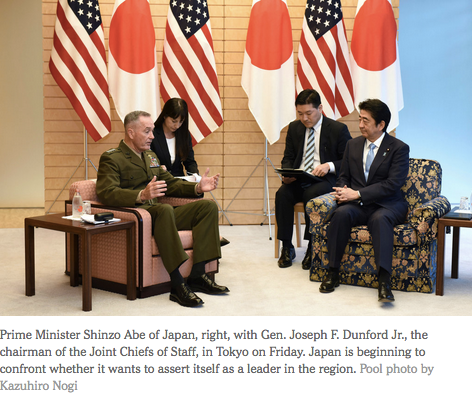TOKYO — Prime Minister Shinzo Abe of Japan has never seemed to waver in his support for President Trump, seeking out meetings and regularly speaking by telephone. He is one of a few world leaders who rarely criticize or even comment on Mr. Trump’s political turmoil at home.
That approach, as much as a personal relationship, reflects Japan’s keen awareness that it needs the United States as its primary protector in a volatile region.
But amid public proclamations that appear to show little difference between the countries — and as North Korea accelerates its nuclear program — Mr. Abe has started to consider a more independent role for Japan in Asia: one that looks beyond the current White House as Japan prepares for an era in which American influence may be waning.
Japan is beginning to confront whether it wants to assert itself as a regional leader and carry on the values that have long been the foundation of American policy. “In the long term, Japan has to think about how to preserve liberal order and free trade,” said Takako Hikotani, an associate professor of modern Japanese politics and foreign policy at Columbia University. “That’s not just in the interest of Japan, but the region as a whole.”




